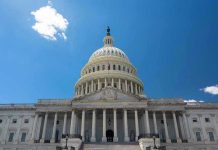
The UK’s oldest scientific academy, the Royal Society, may expel Elon Musk, a move not taken in over 150 years, due to his controversial conduct.
Key Takeaways
- Over 2,700 scientists have signed an open letter questioning Elon Musk’s Royal Society membership.
- The Royal Society will hold a meeting on March 3 to discuss principles regarding Fellows’ public behavior.
- No fellow has been expelled from the Royal Society in over 150 years.
- The situation has sparked debate on intellectual freedom and scientific integrity.
- Expulsion could have significant implications for Musk’s reputation and the Royal Society’s image.
Scientific Community Challenges Musk’s Fellowship
The Royal Society, the UK’s most prestigious scientific institution, faces an unprecedented situation as it considers the potential expulsion of tech magnate Elon Musk from its ranks. This development comes in response to mounting pressure from within the scientific community, who argue that Musk’s recent behavior contradicts the society’s established code of conduct.
Professor Stephen Curry of Imperial College London has spearheaded this movement, garnering support from over 2,700 scientists who have signed an open letter expressing their disapproval of Musk’s actions. The letter questions the compatibility of Musk’s conduct with the Royal Society’s values and principles.
“I am at a loss to understand how these actions are consistent with a code of conduct that requires fellows to have ‘due regard for the statement of values developed from time to time by Society'” Professor Stephen Curry stated.
Historical Significance and Institutional Dilemma
The gravity of this situation becomes apparent when considering that no fellow has been expelled from the Royal Society in over 150 years. The last such incident occurred when Rudolf Eric Raspe was removed for fraud. This historical context underscores the exceptional nature of the current controversy surrounding Musk’s membership.
Sir Adrian Smith, president of the Royal Society, finds himself in a delicate position. While acknowledging the concerns raised about fellows’ public behaviors, he has cautioned against the society making judgments on views or affiliations, particularly those that might be perceived as political. This stance highlights the complex balance the institution must strike between upholding scientific integrity and respecting intellectual freedom.
Elon Musk might become the first Royal Society member in over 150 years to be expelled quite an achievement . Turns out, spewing nonsense and fueling division isn’t the kind of “innovation” the 365-year-old institution values. Who knew that being an attention-hungry billionaire…
— 𝕄𝕒𝕣𝕘𝕒𝕣𝕖𝕥🌴Siegien 🐦📷 (@margaretsiegien) February 18, 2025
Implications and Potential Consequences
The outcome of this controversy could have far-reaching implications. For Musk, expulsion from such a prestigious body could potentially damage his reputation and affect investor confidence in his ventures, including Tesla and SpaceX. For the Royal Society, the decision will likely be scrutinized as a test of its commitment to scientific values and its ability to navigate modern ethical challenges.
“I don’t like what Musk is doing — it’s reprehensible. But I also think he’s an astounding person in terms of what he has contributed to engineering.” An anonymous fellow remarked, highlighting the complexity of the situation.
The controversy has already led to resignations, including that of Professor Dorothy Bishop from the University of Oxford, who cited discomfort with the institution’s continued association with Musk. This internal discord reflects the broader debate within the scientific community about the responsibilities that come with prestigious memberships.
Looking Ahead
As the Royal Society prepares for its March 3 meeting to discuss principles around public pronouncements and behaviors of Fellows, the scientific community and the public alike await the outcome with keen interest. The decision will not only affect Musk’s standing but could also set a precedent for how scientific institutions address controversies involving high-profile members in the future.
Whatever the outcome, this situation has already sparked important discussions about the intersection of scientific achievement, public behavior, and institutional responsibility in the modern era. It serves as a reminder of the evolving challenges faced by long-standing institutions in maintaining their integrity while adapting to the complexities of the 21st century.
Sources:
- UK’s oldest scientific academy may do to Elon Musk what it has not done to anyone in 150 years – The Times of India
- ‘Bond Villain’: Why 2700 Members Of The UK’s Prestigious Royal Society Want Elon Musk’s Fellowship Revoked | Times Now
- Elon Musk faces exile from 365-year-old Royal Society scientific institution over his political behavior
- Elon Musk’s Royal Society Drama: An Unprecedented Political Power Play | AI News














